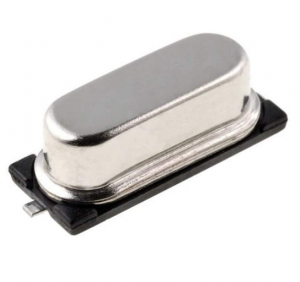What You Need To Know About Quartz Resonators

A quartz resonator is an electronic component that uses the piezoelectric effect of quartz to create an electrical signal with a very precise frequency. They are used in a wide variety of electronic devices, from computers and cell phones to radios and TVs. While they may seem like a relatively new invention, quartz resonators have been around for over 100 years. In this blog post, we will explore the history of quartz resonators and how they work. We will also discuss some of the challenges associated with manufacturing them and how to overcome them.
What is a quartz resonator?
A quartz resonator is a device that uses the piezoelectric effect of quartz to create an electrical signal. Quartz is a mineral that is found in many rocks, including sandstone and granite. When quartz is heated, it produces a voltage that can be used to create an electrical current. Quartz resonators are used in many electronic devices, including watches, radios, and computers.
Quartz resonators are made up of two plates of quartz crystal, with electrodes on each plate. When a voltage is applied to the electrodes, the quartz crystals vibrate at a very high frequency. This vibration creates an electrical signal that can be used to carry information. Quartz resonators are very stable and accurate, which makes them ideal for use in electronic devices.
How does a quartz resonator work?
A quartz resonator is a device that uses the piezoelectric effect to create an electrical signal at a precise frequency. Quartz is an abundant mineral found all over the world, and when it’s cut into thin slices, it can vibrate very rapidly.
When electricity is applied to a quartz crystal, it causes the crystal to vibrate at a very precise frequency. This vibration can be used to create an electrical signal that can be used to keep time or generate frequencies for electronic devices. Quartz crystals are used in watches, clocks, radios, and computers.
The benefits of using a quartz resonator
A quartz resonator is a device that uses the piezoelectric effect to create an electrical signal at a specific frequency. Quartz resonators are used in many electronic devices, such as clocks, radios, and computers.
Quartz resonators have many benefits over other types of resonators. Quartz is a very stable material, so quartz resonators can maintain their frequency much better than other types of resonators. Quartz resonators also have a very high Q (quality factor), which means they can produce a very strong signal. Quartz resonators are also very small, so they can be used in smaller electronic devices.
The different types of quartz resonators
There are four main types of quartz resonators: AT-cut, BT-cut, SC-cut, and FT-cut. AT-cut resonators have the best temperature stability but are the most expensive. BT-cut resonators have good temperature stability and are less expensive than AT-cuts. SC-cut resonators have the best frequency stability but are the least temperature stable. FT-cut resonators have good frequency and temperature stability.
How to choose the right quartz resonator for your needs
When it comes to choosing the right quartz resonator for your needs, there are a few things you need to take into account. First, consider the application the quartz resonator will be used in. There are different types of quartz resonators designed for different purposes, so make sure you choose one that is suited for your application.
Next, take into account the frequency range you need. Quartz resonators come in a variety of frequencies, so make sure you choose one that will cover the range you need.
Finally, consider the size and power requirements of your application. Quartz resonators come in different sizes and have different power requirements, so make sure to choose one that will fit your needs.
Conclusion
Quartz resonators are an important part of electronic devices, and they can be found in a wide variety of products. In order to choose the right quartz resonator for your device, it is important to understand the different types that are available and how they work. We hope that this article has given you a better understanding of quartz resonators so that you can make an informed decision about which type is right for your needs.
